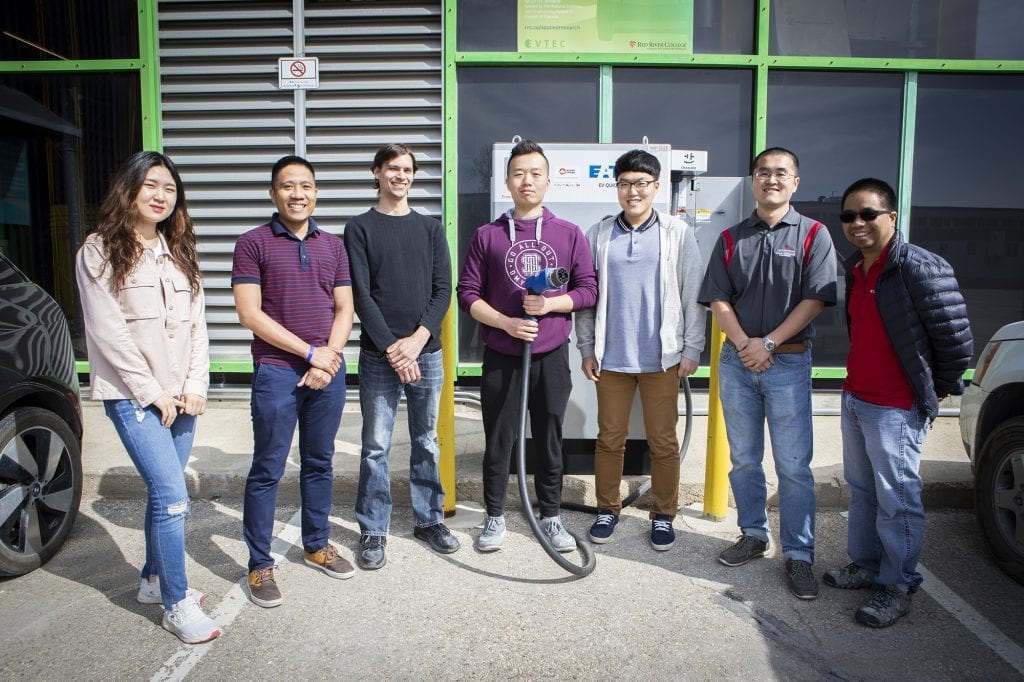RRC students win national award for innovative concepts to advance the e-vehicle industry
Imagine a world where your vehicle drives itself, connects to the Internet, and charges just like your phone.
That’s how Joel Turner, a student in Red River College’s Electronic Engineering Technology program, describes the concept that won his group first place in the 2018 Electric Mobility Canada Kia Student Competition.
This is the first time an RRC team has won the competition, and the second time the College has entered.
“The benefits to our team’s solution are countless. The best of them are reduced air pollution, reduced vehicle maintenance cost, and better learning by having available data,” says Turner, who worked on the project with teammates from RRC’s Electronics Engineering Technology, Electrical Engineering Technology, Mechanical Engineering Technology and Business Administration programs.
Since 2012, the competition has tasked student groups with finding and presenting solutions that will advance the electric vehicle industry. This year’s competition asked what technological breakthrough will be a game-changer for e-mobility within five years, and why this will have a major impact on e-mobility at large.
The RRC team’s solution combines 5G (fifth-generation wireless technology) and new battery technology to connect the three current megatrends in transportation e-mobility: autonomous vehicles, electric vehicles and connected/shared vehicles. The vision points to an almost Jetsons-like world where vehicles are connected to each other and their surroundings to create a safer, more energy efficient driving environment.
“When we started this project the students already had background knowledge, so we challenged them to look further and see what technology we can use to enable 5G,” says Chris Basilio, Research Coordinator for the Vehicle Technology & Energy Centre (VTEC) at RRC, who assisted the students with their proposal.
“They were able to look at existing 4G infrastructure and what could happen if it were updated to 5G.”
Turner said the competition allowed him to use the knowledge he learned in class — specifically, how wireless communications are implemented and how networks are built and operated — while also helping him form a better understanding of what his instructors are teaching through applied learning.
“For the students, the competition can be an eye opener on what they will be doing when they graduate,” says Basilio. “They have the opportunity to see what’s out there in the industry, enrich their presentation skills and learn how to work with people who come from different areas of expertise.”
As part of their win, the team received a $2,000 prize from Kia Canada and had their solution shared at the 2018 Electric Vehicle Conference & Trade Show in Ottawa. The team took part in the competition with support from VTEC members Jeongsoo Bae, Bin Yang, Mike Oh and Jojo Delos Reyes.
Shown above: Garam Park (student), Jairuz Agang-Ang (student), Joel Turner (student), Xinzhi Liu (student), Seokmin Mike Oh (coach), Bin Yang (coach), Chris Basilio (coach/integrator).
Not shown: Students Keith-Daniel Cross, Ari Robinson and Justin Schroeder.

